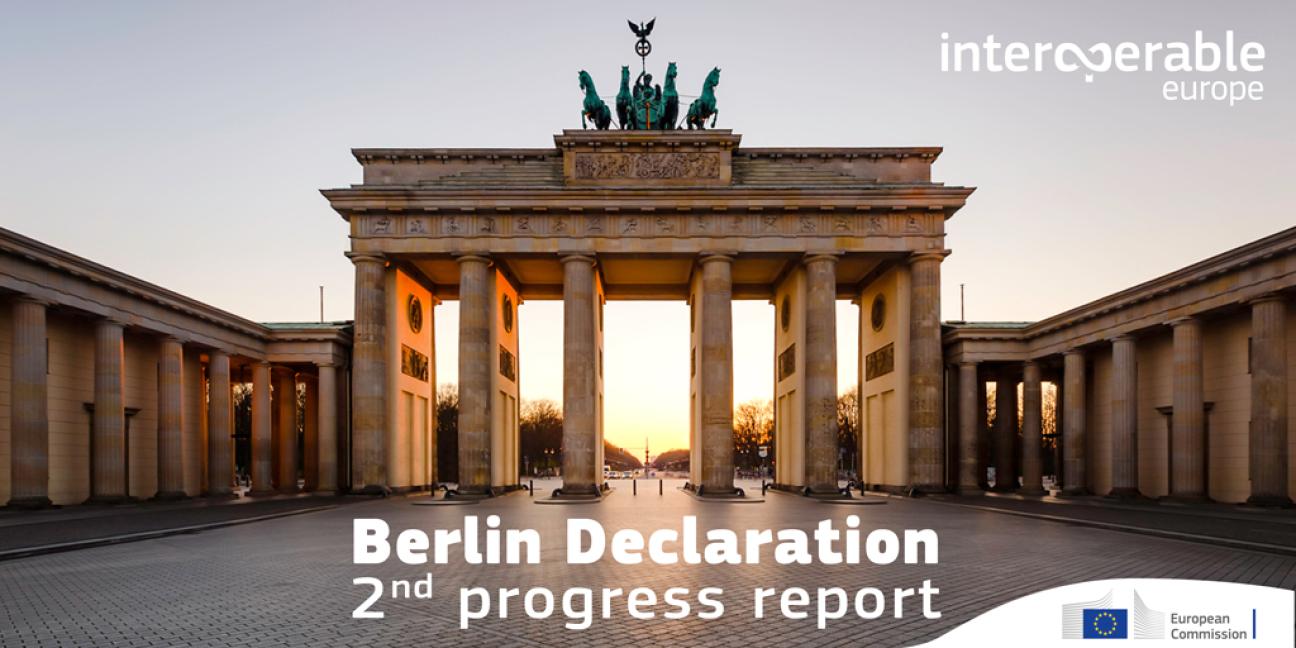The European Commission has published the second progress report on the Berlin Declaration on Digital Society and Value-Based Digital Government. This second report, prepared under the Swedish Presidency of the Council for the European Union, provides an overview of the progress made by the Member States in implementing the Policy Actions of the Berlin Declaration.
As digitalisation is one of the most important tools available to meet the challenges of today, the Declaration sets out 22 policy actions distributed over seven policy areas to safeguard the alignment of the digital transition of society with European fundamental rights and values.
Compared to the first report (with the results of 2021), progress in implementation has been observed in all seven policy areas in 2022, albeit uneven. Member states advanced the most in the policy area of ‘Promoting Fundamental Rights and Democratic values in the Digital Sphere’ (12 pp). Progress was the lowest in policy areas such as ‘Strengthening Trust through Security in the Digital Sphere’ (1 pp) and ‘Fostering resilience and sustainability’ (1 pp).
The policy area of ‘Promoting Fundamental Rights and Democratic values in the Digital Sphere’ (85%) has surpassed the policy area of ‘Strengthening Trust through Security in the Digital Sphere’ (81%), as the policy area with the highest level of implementation.
Success stories: Digital skills and online safety
Like the previous report, the 2022 report offers an overview of the results for each Member State for each of the 22 policy actions in the declaration, as well as a range of examples of qualitative stories by Member States in the implementation of such policy actions.
Amongst these stories are multiple initiatives to increase the digital skills of public servants and citizens (Spain, Germany, Ireland, Lithuania, France, Belgium…) and to promote a safer and empowered use of the internet by children (Ireland, Poland, Croatia…).
For example, Spain has put in place the ‘Generation D Pact’, a complete ecosystem to involve Spanish society in the digital transformation process, to close the digital skills gap, and to raise the percentage of the Spanish population with these skills from the current 70% to 100%.
The National Plan for Children's Rights in the Republic of Croatia contributes to the creation of a policy dedicated to the protection of children's rights. Among other actions, the measures provide systematic support to children in the digital environment and help them to develop their media literacy, as the use of digital technology can have positive effects on a child's development.
Apart from digital skills and child protection, more diverse inspiring projects are also notable across the member states, such as a digital portal to help Ukrainian refugees, an ICT strategy that incorporates the principles of the European Interoperability Framework, a guide on AI for public administrations, and much more!
Read the full report here!
The Berlin declaration on Digital Society and Value-Based Digital Government was signed in December 2020 by all EU Member States and builds further on the political commitments of the Tallinn Declaration on eGovernment.
Want to know more about the Berlin Declaration ? This short video outlines its main principles.

